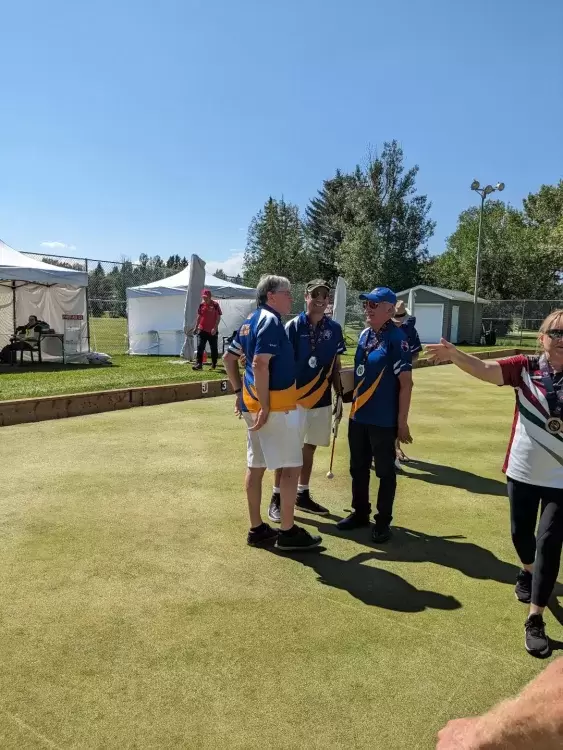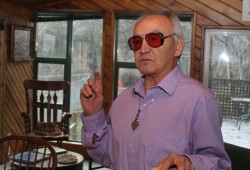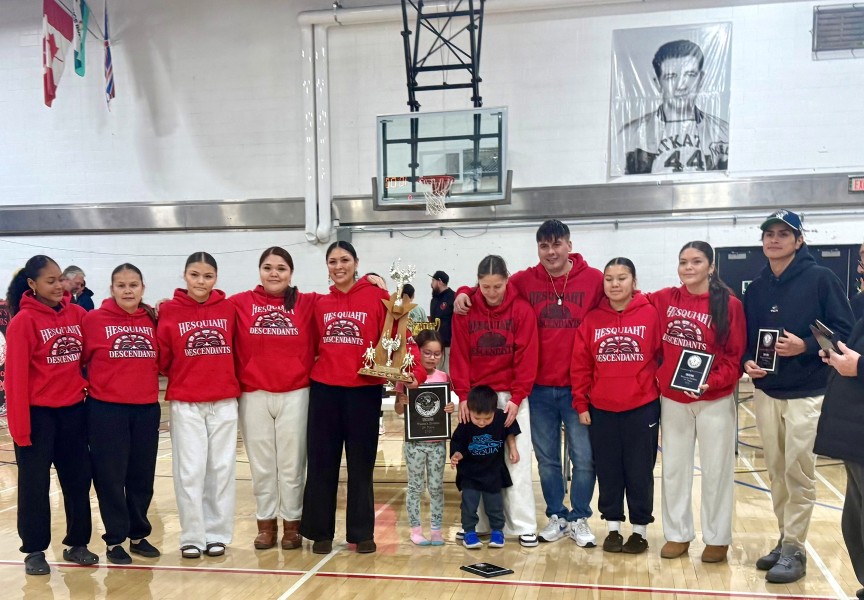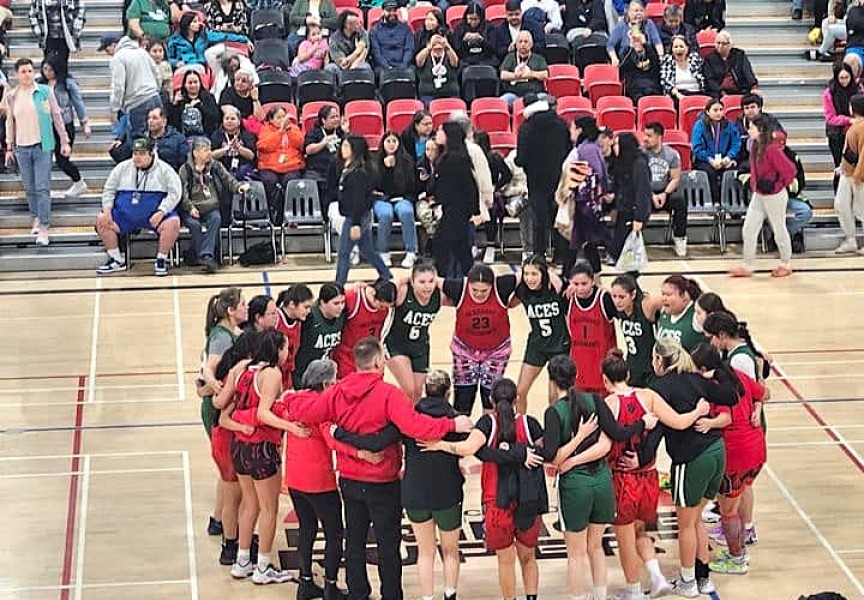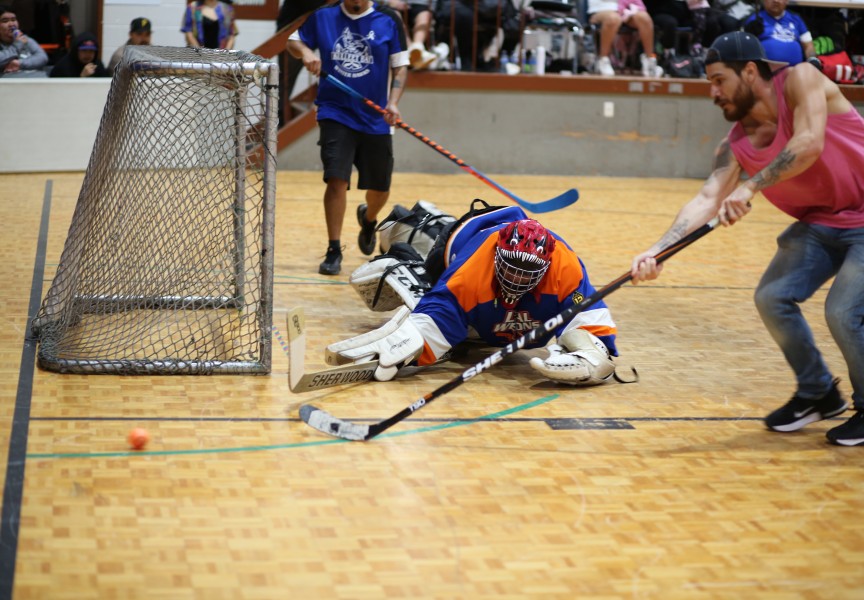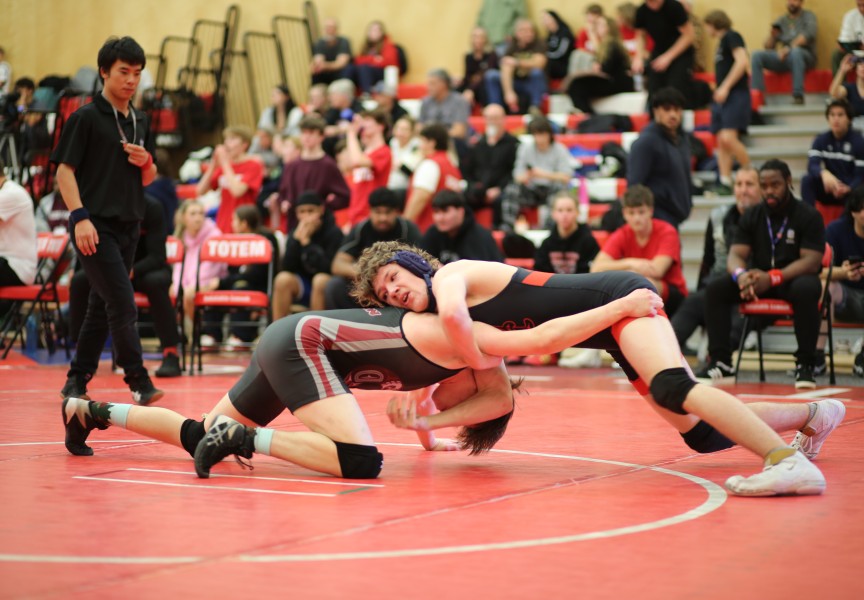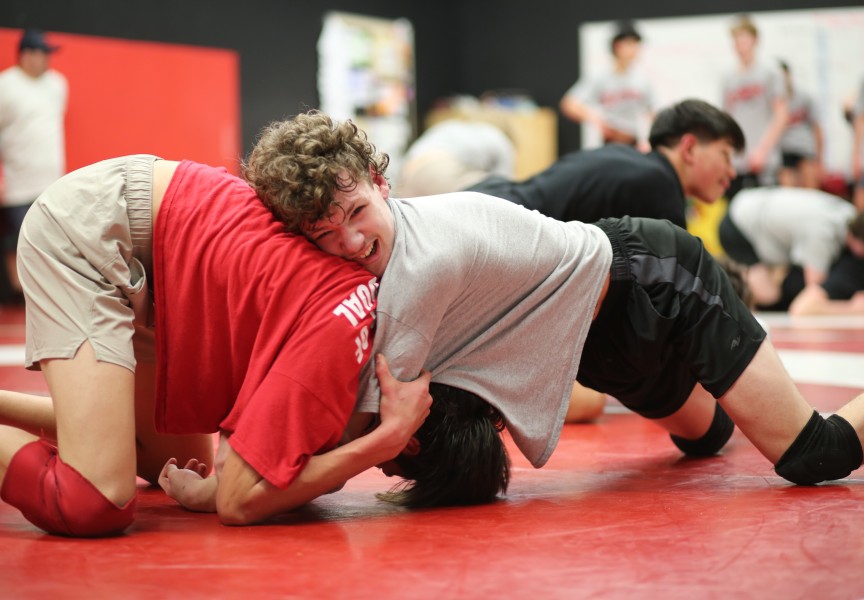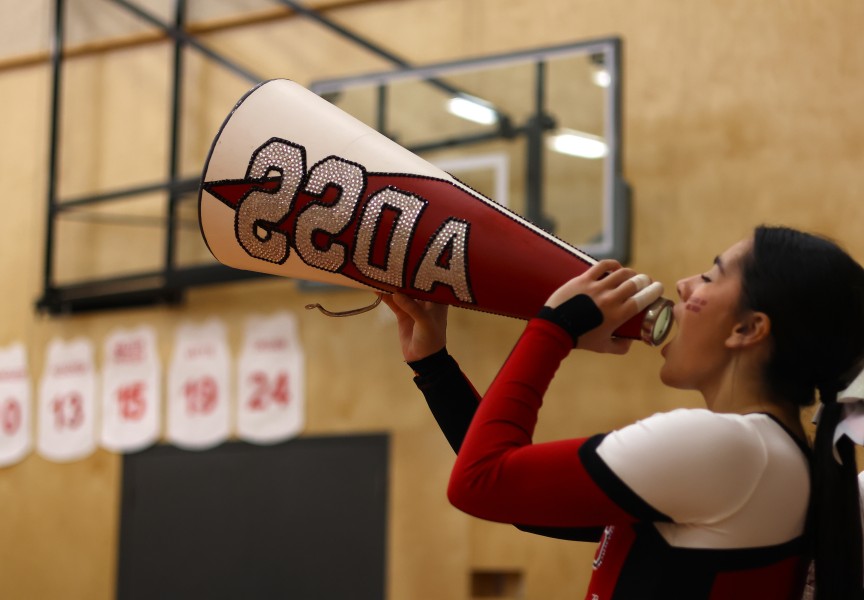Though he has zero vision, Randy Fred has won an estimated dozen national lawn bowling championships.
Fred, a member of Tseshaht First Nation, won his latest title at the 2023 Canadian Para-Bowls Championships.
This event was held at the Stanley Park Lawn Bowling Club in Calgary. The tournament ran from July 24-30.
Fred, who represents the Nanaimo Lawn Bowling Club, was the only competitor in the B1 category, for those that have no sight. Thus, he knew he would capture another national title.
But he did end up participating in a six-player grouping against others who had various percentages of sight.
Donn Sherry, a coach with the Nanaimo club, said Fred is a rather proficient bowler.
“He’s good,” Sherry said of Fred. “He played a round-robin with five other people who had some sight at the nationals. And in the round-robin he came in second out of the six players.”
Meanwhile, another Nuu-chah-nulth bowler, Jay Gatlay, a member of Mowachaht/Muchalaht First Nation, placed second in his B3 category at the nationals.
Gatlay has zero vision in his left eye but can see fine with his right one.
The Canadian Para-Bowls Championships was open to any visually impaired or physically impaired lawn bowler who belongs to an affiliated club in the country.
This year marked just the second time the national tournament has been staged.
But Fred, who is 72, had previously participated in Canadian championships that were restricted to visually impaired bowlers.
He’s lost count of the exact number of national titles he’s captured but he estimates he’s won a dozen since 2000 when he took up the sport of para bowling.
Fred hones his skills with weekly sessions that are held Tuesdays at the Nanaimo club. The lawn bowling season runs from late April until early October.
Fred said the main reason he enjoys para bowling is because of the friendships he’s made.
“The camaraderie is the greatest thing,” he said.
Visually impaired bowlers compete with the assistance of a director who will stand behind.
Fred said when he releases a ball he aims at his fingertips. His director will inform him whether to aim right or left of his projected target, which is called a jack and is a small white bowl (ball) that competitors try to get as close as possible to with their four shots in each end.
Plus, another individual will be standing near the jack, which can range anywhere between 21-33 metres away. That individual will inform bowlers how far away the jack is.
“If it’s 21, there’s no backswing at all,” Fred said, adding he will incorporate an appropriate backswing once he is told how far away his target is. “It’s a lot of muscle memory.”
Though he ended up winning his category by default at the nationals, Fred was disappointed with the turnout.
“This is the first time there hasn’t been a good showing,” he said. “I think COVID had a lot to do with it. Some years we’d have 40 or more participants at nationals. This year I think there was 18-20.”
Since they were unable to lawn bowl for a couple of years during the pandemic, Fred believes several previous participants at the nationals have given up the sport.
But he plans to keep playing.
Fred is now waiting to hear whether he is eligible to participate in an international para-bowls tournament next year in South Africa.
At this year’s Canadian tourney there was talk that B1 competitors would not be able to take part at the South African event.
But Sherry said a final decision has yet to be made on which categories to include at the 2024 international tourney.
International para bowls events, hosted by different countries, attract players from around the globe.
Fred competed at a 2017 international tourney, which was held in New Zealand.
“I tell everybody I came second in every game,” Fred said, making fun of the fact he did not manage to win any of his 10 matches. “But they were really good games. I didn’t lose by a lot.”
Though it is not yet known whether B1 athletes will be able to compete in South Africa next year, Fred does have a bucket list of where he is keen to showcase his para bowling skills.
“I would love to go to Scotland or Israel,” he said. “But they haven’t announced that those countries will host an event yet.”
As for Gatlay, his second-place finish in Calgary qualified him to enter the South African tournament next year.
But the 52-year-old is not sure whether he will indeed participate.
“I’m hoping to go but I haven’t talked it over with my head coach yet,” said Gatlay, who lives on Gabriola Island.
If he does decide to head to South Africa, Gatlay said he would then have to come up with a fundraising strategy.
“I’m hoping to find that out within the next week,” Gatlay said on Monday.
Meanwhile, another member of the Nanaimo Lawn Bowling Club, Dave Ruckman, who is not Indigenous, won a gold medal in the B4 category at the nationals.

